Albert Leentjens is the winner of the Frits Huyse Award 2023. Congratulations!
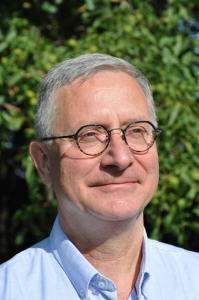
Albert Leentjens
Albert Leentjens is professor of Neuropsychiatry at Maastricht University Medical Centre (MUMC), Maastricht the Netherlands. He studied medicine in Antwerp, Belgium, and Rotterdam, the Netherlands. After a working period in England, he was trained as a psychiatrist and psychotherapist at the Erasmus University Medical Centre, Rotterdam, the Netherlands. He received his PhD degree at Maastricht University in 2002, on a thesis about depression in Parkinson’s disease.
Since his specialist registration in 1996 he works as a psychiatrist at the MUMC. Until 2002 he was in charge of the CL psychiatric service, but later changed over to neuropsychiatry, where his main clinical and research focus is on the psychopathology of movement disorders and on psychiatric deep brain stimulation (DBS). Currently he leads the neuropsychiatry and old age psychiatry clinics and is in charge of the psychiatric DBS programme at the MUMC. He teaches on these subjects at Medical and Psychological faculties of Maastricht University and is trainer of old age psychiatry for psychiatric residents. He published more than 190 articles in peer-reviewed journals, as well as 47 book chapters and (co-)edited 8 books in the field of CL psychiatry, integrated care, neuropsychiatry and DBS.
From 2001 to 2009 he was the chair of the Section of consultation Psychiatry of the Netherlands’ Psychiatric Association. From 2005 to 2010 he was president of the ‘European Association of Consultation-Liaison Psychiatry and Psychosomatics’ (EACLPP), and stayed on as board member until 2017, during and after the merger of the EACLPP with the European Conference on Psychosomatic Research (ECPR) to form the European Association for Psychosomatic Medicine (EAPM). He was co-founder and vice-chair (2007 – 2009) of the Section of Consultation Psychiatry of the European Psychiatric Association (EPA). After having been associate editor of the Journal of Psychosomatic Research, the journal associated with the EAPM, for 6 years, he was editor in chief of the journal from 2011 to 2017, and is still attached to the editorial board as regular member. In 2022 he received the EAPM fellowship award.
At the 2023 EAPM Conference in Wroclaw Prof. Leentjens will give a lecture ‘Will the biopsychosocial model survive in the age of artificial intelligence and machine learning…?’
Laudatio Albert F.G. Leentjens
The 2023 Frits Huyse Awardee, Albert F.G. Leentjens is currently professor of Neuropsychiatry at Maastricht University Medical Center, Maastricht, The Netherlands. He was born 5th May 1962 in Heerlen, southeast of the Netherlands, in the province of Limburg. After finishing high school (Gymnasium), he studied preclinical medicine (bachelor) at the Rijksuniversitair Centrum Antwerpen (RUCA), Antwerp, Belgium (1980-1983) and subsequently clinical medicine (1983-1986) at the Erasmus University Rotterdam, the Netherlands.
Post-graduate positions and clinical interests
After two-year compulsory residencies at the Academic Hospital Dijkzigt, Rotterdam and affiliated general hospitals (1986-1988), dr. Leentjens stayed one year in Exeter and Swindon, UK, focusing on general medicine, surgery and traumatology. He then moved back to the Netherlands where he worked as resident in neurology at the St. Franciscus Gasthuis, Rotterdam and then as resident in cardiology and general medicine at the IJsselland Ziekenhuis, Rotterdam (1990).
During the period 1991 – 1996 he underwent specialist training in psychiatry at the Academic Hospital Rotterdam, The Netherlands and in 1998, he also qualified as specialist in psychotherapy.
From 1996 to 2002, dr. Leentjens was coordinator of the Psychiatric Consultation and Liaison Service of Maastricht University Hospital. His main clinical interest was psychopathology in neurological diseases especially the neuropsychiatry of movement disorders. However, he also focused on neuromodulation, and especially deep brain stimulation for psychiatric disorders.
Dr. Leentjens was appointed assistant Professor of Psychiatry at Maastricht University Medical Center in 1996; associate Professor in 2009 and full tenure professor in 2019.
Research
In 2002 dr. Leentjens defended his thesis ‘Parkinson’s disease, depression and serotonin’ at Maastricht University. In the following years, he continued his research including being ‘Guest scientist’ at the Division of Cognitive Neurology and Medicine of the Institute of Neuroscience and Medicine of the Research Institute Juelich, Germany.
Important work has been developing new scales to measure anxiety in Parkinson’s disease and diagnostic research criteria for apathy. Leentjens and co-workers have also demonstrated that reduced emotion recognition in Parkinson patients is due to reduced activation of the putamen, but compensated by increased prefrontal activity, so that initially there are no clinical deficits. Ongoing studies address changes in fronto-subcortical connectivity before and after cognitive behavioural therapy for anxiety in Parkinson patients and developing personalized prediction models for disease progression in Parkinson’s disease and Huntington’s disease using machine learning techniques. His research groups are also studying pathophysiological changes (e.g. in connectivity within fronto-subcortical circuits) before and after DBS by MRI scanning. Additional research focus is connectomic stimulation for OCD and DBS in Tourette syndrome.
Contributions to European field of consultation-liaison psychiatry
During his period as chair of the Section of Consultation-Liaison psychiatry of the Netherlands’ Psychiatric Association, dr. Leentjens became board member of the ‘European Association of Consultation-Liaison Psychiatry and Psychosomatics’ (EACLPP) in 2004. From 2005-2010 he was president and continued as board member until 2012. During this period, he co-founded and was vice-chair of the Section of Consultation Psychiatry of the European Psychiatric Association. In 2012, members of EACLPP; the circle of friends organizing European Conferences on Psychosomatic Research (ECPR) and members of the European Network of Psychosomatic Research founded European Association of Psychosomatic Medicine (EAPM). Dr. Leentjens became associate board member of EAPM and from 2021 he is financial auditor.
Dr. Leentjens was chair of the international consensus committee of the Academy of Psychosomatic Medicine (APM, U.S.) and the European Association for Consultation-Liaison Psychiatry and Psychosomatics (EACLPP) for the development of procedural guidelines for consultation psychiatry. He has also been associated and subsequently editor-in-chief and now editorial board member of ‘Journal of Psychosomatic Research’. Currently, he is member of the editorial board ‘Deep Brain Stimulation’ quarterly journal of the Deep Brain Stimulation Society.
International collaborations have included /include Institute of Neuroscience and Medicine of the Research Institute Juelich, Germany; University of Edinburgh, Scotland; University of Bradford, U.K.; Department of Geriatric Psychiatry of Rogaland Central Hospital Stavanger, Norway; Institute of Psychiatry, Psychology and Neuroscience, King’s College in London; Department of Neurology of Lille University Hospital and the Department of Psychiatry and Behavioral Sciences of the Johns Hopkins University School of Medicine, Baltimore, MD, USA.
Final comments
Throughout his career as C-L psychiatrist; board member and president of EACLPP and subsequently important positions within EAPM and as editor-in-chief of J Psychosomatic Research, prof. Leentjens has shared knowledge, support others and fostered collaboration between Europeans in the field of C-L psychiatry. But professor Leentjens has never been one to brag. His style has been characterised by selflessness, systematic and consistent work for European C-L psychiatry in silence. That is why many may not have discovered his great contribution to European C-L psychiatry. He undoubtedly deserves the honor of receiving this year’s Frits Huyse Award for outstanding contribution to the development of Consultation-liaison psychiatry and Integrated Care in Europe.
Interview with Prof. Albert Leentjens on the occasion of winning the 2023 Frits Huyse Award
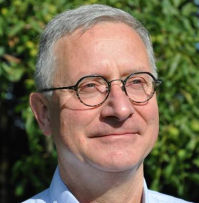
Albert Leentjens
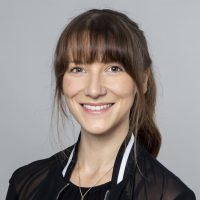
Natalie Uhlenbusch
Dr. Natalie Uhlenbusch (NU): You won the Frits Huyse Award for your outstanding contribution to the development of consultation-liaison psychiatry and integrated care – Congratulations!
Prof. Dr. Albert Leentjens (AL): Thank you!
NU: You have an impressive record in the field of consultation-liaison psychiatry and psychosomatic medicine. How did you end up where you are now and what made you decide to dedicate your career to this subject?
AL: Well that’s actually a difficult question to answer. I’ve always been interested in the interaction between the mind and the body, and the mind and society. So ever since my medical studies I’ve been working on that topic. Many of the things that I took on just happened to come along my path. Of course some people encouraged me to take certain steps. Frits Huyse was actually one of them, so I feel very honored to get the award that was named after him. It was he who encouraged me to stand for the board of the EACLPP (at that time still named EACLPP, before the merger with the ECPR to become the EAPM), which was in Berlin in 2004. I was elected to the board, became president one year later in Istanbul, and I stayed on as president for five years. The Journal of Psychosomatic Research also came along, and I first became editor of the EACLPP pages, and later editor-in-chief, and remained editor-in-chief for seven years, together with Jim Levenson. So many things just came along and I took those chances. They were very helpful, as they increased my network and created the possibility to interact with other colleagues in Europe and also further abroad in the United States. Of course, it’s not only taking these tasks on, but also the amount of effort you put in; you really have to go for the things you take on, but I have the feeling that for a large part it’s also taking the chances that come along.
NU: How nice to hear that you were inspired by Frits Huyse during your career, and now you’re winning the award! That must feel good.
AL: Yes, I’ve known Frits for a long time. We go back more than 25 years when we were together on the board of the section of General Hospital Psychiatry of the Dutch Psychiatric Association. He also was the one that proposed we should publish a book on CL psychiatry in Dutch, and encouraged me to be the main editor. This was another chance that came along and that I took on.
NU: Did your career turn out the way you planned it or expected it?
AL: It turned out much better than I expected it! I never expected when I was a medical student, or working as a resident in psychiatry, that I would one day become professor. In fact, I was the first person in our quite large family to ever go to university. I wasn’t brought up in a family with doctors or professors or anything like that. So that’s something I never expected.
NU: Thinking back about your career to date, is there a project that is or was especially important to you?
AL: Well, my main research area was the psychopathology of movement disorders, mainly Parkinson’s disease. It started off with depression, but now we focus more on cognitive disorders and anxiety. I think the anxiety part is very nice because it has really developed into a line of research. It started with chairing a working group that reviewed the validity of anxiety rating scales for the Movement Disorder Society. We concluded that there was not really a valid anxiety scale for Parkinson patients, because all scales were very sensitive to movement symptoms. So we received a grant to develop the Parkinson Anxiety Scale (PAS), which is used very much in research now, it has been translated into about 20 languages. Once we had that, we started to do research on treatment of anxiety
We developed a cognitive behavioral module to treat anxiety in Parkinson patients, and evaluated its effectiveness in a clinical trial. We also did MRI scans before and after treatment to see what changes CBT brings about in the brain, which neuronal connections are strengthened or weakened. Earlier on we hypothesized in a review paper that anxiety in patients with Parkinson’s disease is due to an imbalance between the fear circuit, which is a more instinctive network, and the anxiety circuit, which is a circuit under cortical cognitive control. We discovered that cognitive behavioral therapy restores the equilibrium between these two circuits by reinforcing the anxiety circuit i.e. by improving the cognitive control over anxiety. This was very much in line with our earlier hypothesis. We’re still doing research in that area, looking into the pathophysiology of anxiety in patients with Parkinson’s disease, which is very fascinating.
Another very exciting project which we are starting up is to see if we can predict disease progression in individual patients with Parkinson’s disease and Huntington’s disease. We have already received a grant to do this in patients with Huntington’s disease and we passed the first round of our application for a similar study in Parkinson patients. What we want to do is to see if we can predict disease progression in individual patients, not only for the movement symptoms but also for cognitive symptoms, neuropsychiatric symptoms, activities of daily living, up until nursing home admission. If we can do that, I think this will have many implications for both patient care and research. This is actually also something I will talk about in my lecture at the EAPM conference.
NU: Beyond these very exciting projects, are there any moments in your career so far that have been particularly memorable for you?
AL: Of course there are the expected highlights of doing your PhD defense and giving my inaugural lecture when I officially became professor. I actually became professor before the Corona time and I had to postpone my inaugural lecture twice until it could finally take place last October. Of course we had a party afterwards which is definitely memorable. But well, actually it is more like a continuum that increases. Of course there a steps like receiving the grant for the cognitive behavioral study, which was one of the larger grants that I received. But also being asked to chair a task force of the Movement Disorder Society which is also a kind of recognition; those are the nice things of course.
NU: You are leading the training scheme of old age psychiatry for psychiatric residents. I would love to hear some more about this work. What does the training look like?
AL: In order to explain that I will have to tell you a bit about how the Dutch training in psychiatry works. The Dutch training in psychiatry lasts four and a half years. During the basic training you have to do a part in adult psychiatry, child psychiatry and old age psychiatry. The old age psychiatry in the basic training lasts only 6 months. But if you want to have a special qualification in old age psychiatry you have to work in that area for one year or one and a half year. The training is in one part supervising clinical work of the residents. Of course, we have our own teaching sessions within the hospital, but the overall training and overall teaching is organized in a regional way for the whole southeast of the Netherlands including all the hospitals up to Eindhoven, which is about a 100 km from here. In additional, residents may spend some time doing research during this period which. Leading the old age psychiatric training scheme implies coordinating the training places, evaluate residents, coordinating the curriculum, participating in teaching and supervising the research of residents.
NU: The demographic change is a major challenge for many countries. Germany, for instance, is the second oldest country worldwide, the median age was almost 48 in 2020, with an upward trend. How does your work shape your view of aging? And of course when a society gets older, the age-related diseases also increase. How can we cope with this as society?
AL: Well, that’s a lot of questions! First of all, I think we have the same problem in the Netherlands. We have a shortage of staff and personnel, not only in psychiatry, but in every medical specialty, and also everywhere outside medicine; there is a shortage of working people, teachers, police men, plumbers, really of all professions. Psychiatry isn’t really considered the most popular medical specialty; we always attract less residents in psychiatry than for instance in cardiology or radiology. However, I think within the academic hospital we are still relatively certain to find enough colleagues, because working in a general or academic hospital is often considered more attractive than working in a psychiatric hospital.
In line with demographic developments, I think the attention is very much shifting towards prevention, because it’s becoming more and more clear that a healthy lifestyle earlier in life will prevent a lot of old-age diseases including not only cardiovascular diseases, diabetes and other physical diseases but also dementia and neuropsychiatric syndromes such as depression. So I think any intervention aimed at prevention should already take place when people are still in their adult life phase. If you ask me, was there a change of view due to old age psychiatry, I think the importance of a healthy life style earlier in your life is very much a determinant of successful ageing.
NU: At the 2023 EAPM conference in Wroclaw next year, you will give a lecture on the topic “Will the biopsychosocial model survive in the age of artificial intelligence and machine learning…”. That sounds really interesting. Can you already tell a little bit about it? Or no spoilers here?
AL: Well. I needed a ‘catchy’ title of course. I think the biopsychosocial model was introduced because the medical model at that time did not suffice anymore, as it was not able to accommodate the social and psychological aspects of disease. Now we are slowly moving towards personalized medicine and precision medicine and run into a new limitation of our medical model. It is impossible to bring highly individual context or risk factors in the biopsychosocial model as it is used today. We are used to looking at psychological and social factors, but we never know whether in this individual patient, divorce or any other adverse events or psychosocial stress factor, really has an influence on health or disease. With personalized medicine and the artificial intelligence machine learning studies that are going on, we can actually make the influence of highly personal risk factors explicit for individual patients. You can introduce highly personalized factors in your risk models and this is something that we cannot easily bring into the biopsychosocial model, since this is a more general inventarization of factors that may or may not be of influence. Our medical model should be able to deal with the new opportunities of personalized medicine, that’s the message I want to bring across.
NU: That sounds really interesting, I’m really looking forward to it already. And do you think artificial intelligence will play a role in psychotherapy in future?
AL: I think that algorithms developed with artificial intelligence will certainly play a role in facilitating diagnoses, predicting disease course and treatment response in individual patients. As far as psychotherapy is concerned, I expect that it will help predict which patients will respond favorably to psychotherapy, and thus help with indicating this treatment. I don’t know if it will play a great role in the actual treatment, psychotherapeutic or medical treatment, but for indicating the treatment yes.
NU: One last question: Is there anything that you would recommend to young scientists in the field?
AL: Of course, the most important challenge is that you need to find a way to stay motivated and interested in your work and look for new developments and go in that direction with your research and patient care. So being open to changes will certainly help. Especially since I think there will be many changes in the next 10 or 20 years. Also the shortage of doctors will require new approaches and a new definition of tasks and responsibilities of doctors. The new possibilities based on machine learning and artificial intelligence will also bring along many changes, changes that also require a rethinking of the doctor-patient-relationship. We need to redefine the actual task of the physician, because in the future doctors will make decisions based on recommendations made by algorithms. For patients to accept these recommendations, they need to be clearly explained and understandable. Therefore, in the machine learning projects that we are starting now, we pay a lot of attention to that point, because we don’t want ‘black box’ machine learning where you put something in, and something comes out, but the algorithm remains hidden and nobody really understands what the computer does. In that way you would never be able to explain why you are doing something to your patients and for that reason such techniques will probably fail implementation. So in our research we focus on what we call “white box” machine learning, where the algorithm is made explicit, so you really know which influence each single variable or risk factor has and you can explain it to the patient.
So I think when doing research in that area, with the new options for research, I think we should also reconsider what is essential in the doctor-patient-relationship, the role of actual live patient contact – as you mentioned earlier. We should not lose that out of sight.
NU: Thank you very much for your time and openness and I am looking forward to seeing you at the EAPM conference in 2023!
At the 2023 EAPM Conference in Wroclaw Prof. Leentjens will give a lecture ‘Will the biopsychosocial model survive in the age of artificial intelligence and machine learning…?’
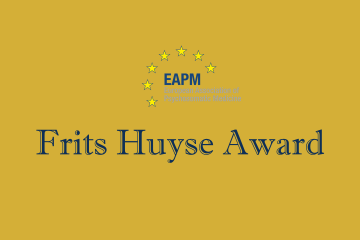

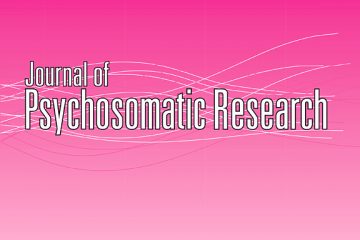
0 Comments